Build a working medical vocabulary quickly with Chabner’s Medical Terminology: A Short Course, 9th Edition! Omitting time-consuming, nonessential information, this text helps you master the basics of medical vocabulary — including the most frequently encountered suffixes, prefixes, and word roots. A text/workbook format lets you practice and interact with medical terminology on almost every page through exercises, labeling, and pronunciations. Case studies and real-world vignettes demonstrate how medical terms are used in practice. With all this plus medical animations, word games, and flash cards on the Evolve website, you’ll be amazed at how easily medical terminology becomes part of your vocabulary.
Medical Terminology: A Short Course, 9th Edition
KShs 11,100.00
Build a working medical vocabulary quickly with Chabner’s Medical Terminology: A Short Course, 9th Edition! Omitting time-consuming, nonessential information, this text helps you master the basics of medical vocabulary — including the most frequently encountered suffixes, prefixes, and word roots. A text/workbook format lets you practice and interact with medical terminology on almost every page through exercises, labeling, and pronunciations. Case studies and real-world vignettes demonstrate how medical terms are used in practice. With all this plus medical animations, word games, and flash cards on the Evolve website, you’ll be amazed at how easily medical terminology becomes part of your vocabulary.
1 in stock
Related products
-
Contact Lens Practice
KShs 29,400.00In this thoroughly revised and updated third edition of Contact Lens Practice, award-winning author, researcher and lecturer, Professor Nathan Efron, provides a comprehensive, evidence-based overview of the scientific foundation and clinical applications of contact lens fitting. The text has been refreshed by the inclusion of ten new authors – a mixture of scientists and clinicians, all of whom are at the cutting edge of their specialty. The chapters are highly illustrated in full colour and subject matter is presented in a clear and logical format to allow the reader to quickly hone in the desired information.
-
Management Principles for Health Professionals
KShs 7,420.00Management Principles for Health Professionals is a practical guide for new or future practicing healthcare managers. The customary activities of the manager―planning, organizing, decision making, staffing, motivating, and budgeting―are succinctly defined, explained, and presented with detailed examples drawn from a variety of health care settings. Students will learn proven management concepts, techniques, models, and tools for managing individuals or teams with skill and ease.The Eighth Edition continues to present foundational principles of management in the context of contemporary health care. With timely coverage of such topics as medical cost sharing; use of robots; ER by appointment; increased use of observation units; renewed use of flextime staffing and scheduling; use of social media on the job, and more, this thoroughly updated text addresses the latest trends and issues that today’s health care manager is likely to encounter.Key Features- Presents 2 new tools ―The Manager’s Wheel Book and the Management Reference Portfolio ― to help new managers better understand their role and responsibilities and to aid existing managers in understanding their organization in detail- Covers managing care in a wide variety of health care settings (urgent care centers, specialty clinics, home care, etc.) outside of the traditional hospital setting.- Addresses technology and its impact, including eVisits/telemedicine, implementation of electronic health records, connectivity and the expectation that workers will respond during off hours via email and instant messaging, etc. – Offers expanded coverage on the importance and impact of corporate culture, the values of transparency and accountability, leadership style, and competitiveness.- Includes detailed examples of reports, plans, directives, union contracts, and more.
-
Clinical Examination Essentials An Introduction to Clinical Skills (and how to pass your clinical exams)
KShs 7,000.00Talley and O’Connor’s Clinical Examination Essentials 5e provides an introduction to the skills required to successfully pass your clinical exams.
It offers tips on how to impress your examiners and highlights key steps in taking a history and conducting a physical examination. With practice these will become second nature, even under the stress of exam conditions.
We hope that Talley and O’Connor’s Clinical Examination Essentials inspires you to master your clinical skills and embark on a successful medical career. If you are looking to further develop your history taking and examination techniques, Talley and O’Connor’s Clinical Examination: A Systematic Guide to Physical Diagnosis provides greater detail
-
Pocket Tutor Orthopaedics
KShs 5,500.00Titles in the Pocket Tutor series give practical guidance on subjects that medical students and foundation doctors need help with “on the go”, at a highly affordable price that puts them within reach of those rotating through modular courses or working on attachment.
- Common investigations (ECG, imaging, etc)
- Clinical skills (patient examination, etc.)
- Clinical specialties that students perceive as too small to merit a textbook (psychiatry, renal medicine)
Key points
- Practical, accessible introduction to a subject that students find daunting, but which juniors will encounter as part of orthopaedic and emergency rotations
- Logical, sequential content: relevant basic science; then chapters devoted to the clinical essentials of orthopaedics and the disorders and injuries seen most commonly in practice
- Descriptions of common disorders are enhanced by Clinical Scenarios (Patient presents with…), which help students and trainees to recognise and manage common presenting problems
-
Hutchison’s Clinical Methods International Edition, 25th Edition
KShs 6,370.00Hutchison’s Clinical Methods, 25th International Edition, offers comprehensive guidance on patient assessment, clinical examination, and diagnostic skills, essential for medical students and practitioners worldwide.
Sir Robert Hutchison first published his textbook on Clinical Methods in 1897 and this latest edition maintains its reputation as the go-to guide to learn the core skills every clinician needs in their everyday practice.
Medical students and doctors in training will find essential guidance to taking a full history, examining a patient and interpreting the findings. They will learn the art of understanding, contextualising, communicating and explaining, with the doctor-patient relationship firmly at the centre of their practice. These skills remain essential for every doctor, in addition to modern investigative methods.
The book covers basic principles, different patient groups and all the main body systems. Each chapter includes relevant clinical methods and offers guidance for appropriate investigations. New methods and investigations are incorporated into established patterns of clinical practice to offer a fully integrated approach.
This award-winning textbook remains as relevant today as ever and will be treasured by doctors at all levels of training and practice as an outstanding source of learning and reference.
Key Features-
- All chapters carefully reviewed and updated to reflect modern practice
-
- Written by experts in their field and reviewed by an International Advisory Board – content is relevant to a wide international readership including in the Indian sub-continent, the Middle East and Africa
-
- Covers all the main body systems, including the core areas of respiratory, cardiological, gastrointestinal, neurological and locomotor systems
-
- Text organised by system and problem to aid navigation
-
- Chapters can be read individually, to avoid duplication and need for cross-referencing
-
- Tabulated information and diagrams for clarity and conciseness
-
- Tailored to student needs but suitable for doctors at all levels of training and practice
-
- Winner of multiple awards, including the BMA book awards
-
- New appendix describing the clinical features of COVID-19
Author InformationEdited by Michael Glynn, MA, MD, FRCP, FHEA, Consultant Physician, Gastroenterologist and Hepatologist, Barts Health NHS Trust; Honorary Senior Lecturer, Barts and the London School of Medicine and Dentistry; Former National Clinical Director for GI and Liver Diseases, NHS England and William M Drake, DM FRCP, Consultant Physician/Reader in Medicine, Department of Endocrinology, St Bartholomew’s Hospital, London, UK -
-
Nelson Textbook of Pediatrics, 2-Volume Set, 21st Edition
KShs 25,200.00Nelson Textbook of Pediatrics – the reference of choice among pediatricians, pediatric residents, and others involved in the care of young patients. This fully revised edition continues to provide the breadth and depth of knowledge you expect from Nelson, while also keeping you up to date with new advances in the science and art of pediatric practice. Authoritative and reader-friendly, it delivers the information you need in a concise, easy-to-use format for everyday reference and study. From rapidly changing diagnostic and treatment protocols to new technologies to the wide range of biologic, psychologic, and social problems faced by children today, this comprehensive 2-volume reference keeps you on the cutting edge of the very best in pediatric care.
Key Features-
- Includes more than 70 new chapters, including Postural Orthostatic Tachycardia Syndrome (POTS), Rare and Undiagnosed Diseases, Approach to Mitochondrial Disorders, Electronic Nicotine Delivery Systems, Zika, update on Ebola, Epigenetics, Autoimmune Encephalitis, Global Health, Racism, Media Violence, Strategies for Health Behavior Change, Positive Parenting, and many more.
-
- Features hundreds of new figures and tables throughout for visual clarity and quick reference.
-
- Offers new and expanded information on CRISPR gene editing; LGBT health care; gun violence; vaccinations; immune treatment with CAR-T cells; new technology in imaging and genomics; new protocols in cancer, genetics, immunology, and pulmonary medicine; and much more.
-
- Provides fresh perspectives from four new associate editors: Nathan J. Blum of The Children’s Hospital of Philadelphia; Karen Wilson of Mt. Sinai School of Medicine in New York; Samir S. Shah of Cincinnati Children’s Hospital Medical Center; and Robert C. Tasker of Boston Children’s Hospital.
-
- Provides regular updates online, written exclusively for Nelson.
-
- Remains your indispensable source for definitive, evidence-based answers on every aspect of pediatric care.
-
- Enhanced eBook version included with purchase. Your enhanced eBook allows you to access all of the text, figures, and references from the book on a variety of devices.
Author InformationBy Robert M. Kliegman, MD, Professor and Chair Emeritus, Department of Pediatrics, Medical College of Wisconsin, Children’s Hospital of Wisconsin, Milwaukee, Wisconsin and Joseph St. Geme, MD, Chair, Department of Pediatrics, Professor of Pediatrics and Microbiology, Perelman School of Medicine at the University of Pennsylvania; Physician-in-Chief, Leonard and Madlyn Abramson Endowed Chair in Pediatrics, Children’s Hospital of Philadelphia, Philadelphia, Pennsylvania -
-
Management Principles for Health Professionals
KShs 7,420.00Management Principles for Health Professionals is a practical guide for new or future practicing healthcare managers. The customary activities of the manager―planning, organizing, decision making, staffing, motivating, and budgeting―are succinctly defined, explained, and presented with detailed examples drawn from a variety of health care settings. Students will learn proven management concepts, techniques, models, and tools for managing individuals or teams with skill and ease. The Eighth Edition continues to present foundational principles of management in the context of contemporary health care. With timely coverage of such topics as medical cost sharing; use of robots; ER by appointment; increased use of observation units; renewed use of flextime staffing and scheduling; use of social media on the job, and more, this thoroughly updated text addresses the latest trends and issues that today’s health care manager is likely to encounter. Key Features – Presents 2 new tools ―The Manager’s Wheel Book and the Management Reference Portfolio ― to help new managers better understand their role and responsibilities and to aid existing managers in understanding their organization in detail – Covers managing care in a wide variety of health care settings (urgent care centers, specialty clinics, home care, etc.) outside of the traditional hospital setting. – Addresses technology and its impact, including eVisits/telemedicine, implementation of electronic health records, connectivity and the expectation that workers will respond during off hours via email and instant messaging, etc. – Offers expanded coverage on the importance and impact of corporate culture, the values of transparency and accountability, leadership style, and competitiveness. – Includes detailed examples of reports, plans, directives, union contracts, and more.
-
Netter’s Clinical Skills, 1st Edition
KShs 3,080.00Make the most of every patient encounter – from the clinical interview and history to the physical exam, both in-office and bedside. This discreet quick reference by Ilene L. Rosenberg, MD, FCCP, Todd Cassese, MD, FACP, and Dennis Barbon, RN, helps you achieve consistent and comprehensive results when collecting data and determining your next steps. Carry this thin, fully illustrated checklist in your white coat pocket for the fastest, most efficient way to access essential information you need to know and remember every day.

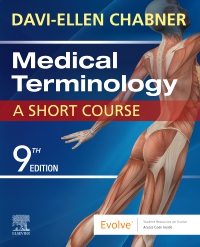
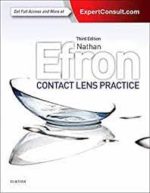

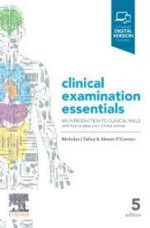
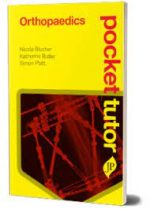
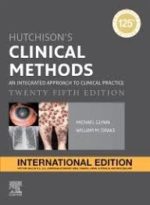


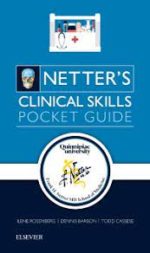
Be the first to review “Medical Terminology: A Short Course, 9th Edition”